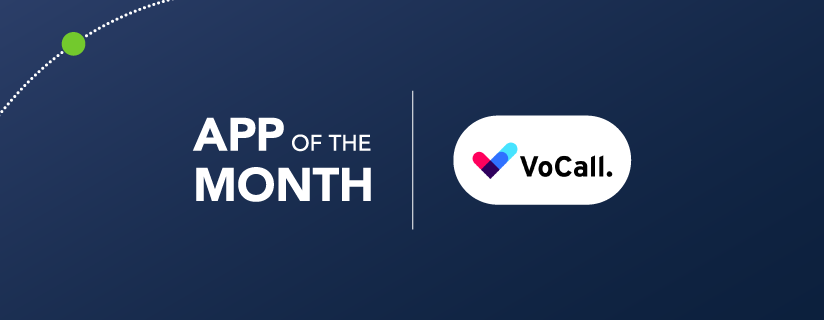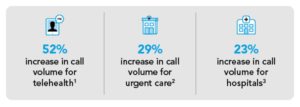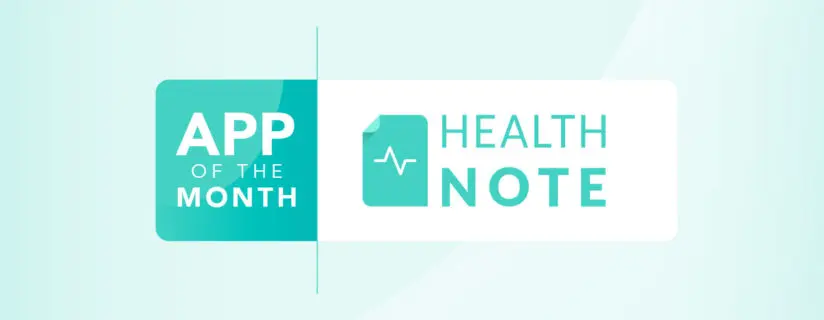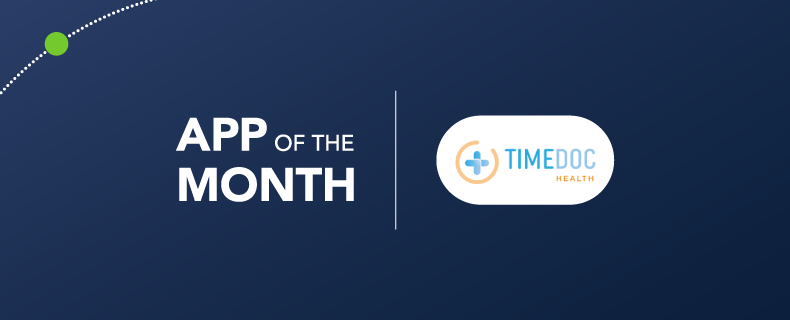Blog Posts
Using natural voice technology to dramatically improve patient scheduling


As most providers already know, scheduling is a highly complex series of negotiations between physicians, schedulers and their patients. Every day, patients confirm, cancel and reschedule appointments – meaning even a moderate surge in patient calls can strain the system, and a large influx can almost certainly break it.
Today’s healthcare systems are overloaded and overwhelmed. Patients expect real-time communication and access to information, a trend that has been amplified, in large part, due to COVID-19 as patients demand greater personalization and faster response times. As a result, the call volume into the healthcare system over the last year has increased significantly.


While scheduling certainly isn’t glamorous, it is the lifeblood of every practice. Without an effective scheduling process, medical practices are at risk of lost revenue and increased costs – when combined, this could lead to long-term operational challenges. Putting a strong schedule management program in place can open up significant business opportunities for medical practices of all sizes.
The healthcare dilemma
Despite advances in technology, 65% of all patients still prefer to schedule appointments by phone. Additionally, for many U.S. medical practices, the phone is the only method available for scheduling or changing appointments.


Yet half of all patients who call doctors’ offices are not able to book an appointment on the first call. And those who don’t get through will often continue to try until their needs are met. This leads to more phone calls, more time on hold, more frustration for the patient and a higher burden for internal staff.
With call volumes so high, a reduction in incoming calls would be a welcome change for many healthcare organizations. Putting the right platform in place can help reduce the number of calls into a medical practice and the associated wait times.
The high cost of sticking with the status quo
The average time it takes to change, cancel or confirm an appointment is just over five minutes, not including the time spent playing “phone tag” listening to messages, leaving messages, entering data into the practice management system, etc. While this may not sound like a lot on the surface, translate that to hundreds of calls per day and the number is staggering.


For medical practices across the country, a significant amount of time and money is being lost to repetitive scheduling tasks. Without a smart technology solution to improve scheduling, practices are wasting valuable time and resources.
Additionally, scheduling challenges will often lead to cancellations and no-shows and manual, error-prone scheduling processes can leave slots open – costing practices millions every day. Each year, the total cost of missed healthcare appointments in the United States is an astronomical $150 billion. Each open, unused time slot costs a physician 60 minutes and $200 on average.
Those numbers don’t even begin to include the financial impact of burnout in the healthcare industry. According to a 2019 report in the Harvard Gazette, burnout among doctors alone is costing the U.S. healthcare system an estimated $4.6 billion a year in billings because of reduced hours, turnover and expenses associated with finding and hiring replacements.
Everyone needs a good Assistant
Patient phone calls, tedious data entry, and repetitive office duties and administrative tasks associated with scheduling are perfect reasons for automation. Appropriately used voice technology has enormous promise to transform healthcare, in part because of the technologic advances being made by a range of companies from Amazon, Google, and Microsoft to smaller, but no less important, specialty companies developing the robustness of voice.
Today, the use of voice assistant technology from Amazon (Alexa), Apple (Siri), Google (Google Assistant) and Microsoft (Cortana) is becoming mainstream. According to the 2019 NPR and Edison Research report, there are more than 120 million smart speakers in U.S. homes. And a Juniper Research report estimates there will be 8 billion digital voice assistants in use by 2023. In fact, asking a voice-assisted device for information is already becoming naturally integrated into daily behavior for many.


While voice has seen enormous growth and acceptance in many business sectors, voice technology adoption in the healthcare sector is only now gaining ground. Recently, there have been rapid advances in reliability, security, HIPAA compliance, EHR integrations and overall user experience. This is creating exciting opportunities to leverage voice technology more readily.
Improve patient engagement with voice technology
Patients are tired of waiting. Whether changing an appointment or waiting for test results, the time spent is twice as long as other professional service categories. Today, voice assistants can interface seamlessly with medical practice EHR and office communications systems, giving patients an easier, more efficient and more effective way to confirm, cancel or change their appointments. Using voice technology is natural, intuitive and easily accessible—and can often be more convenient than logging into an online portal.
Offering such scheduling convenience can go beyond saving staff time and reducing phone volume—fewer phone calls and faster response times can offer opportunities for higher satisfaction, and ultimately stronger engagement, throughout the entire patient journey.
What’s more, patients who feel empowered and in control of their schedule are more likely to show up, which can go a long way to helping your practice and your patients achieve a shared vision—healthier and happier people.
Introducing a new way to manage schedules
Using natural language voice processing technology, VoCall is an innovative new scheduling assistant that enables patients to change, confirm or cancel their appointments over the phone. This leads to improved operational efficiency and resource allocation, true cost savings, business continuity, reduced burnout, and enhanced patient engagement.
VoCall is a scheduling voice assistant that integrates with the Allscripts® Practice Management to fully automate the scheduling workflow. The software solution has been tested and certified by the Allscripts Developer Program.
Allscripts users interested in a powerful new way to streamline scheduling, increase operational efficiency, and improve morale and overall patient engagement are encouraged to register for the App of the Month webinar on Apr. 29, 2021 at 1 p.m. ET.
Additional information about what VoCall has to offer can be found on the Allscripts Application Store or the VoCall website. You can also download the full eBook, Using Voice Technology to Help Solve Medical Practice Scheduling.












